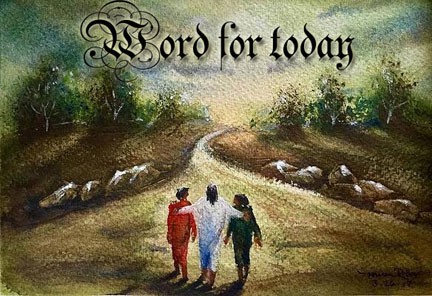Watch
Events
Articles
Market
More
Moses said the Sinai covenant was made with everyone he was speaking to in Deuteronomy 5:1-5, but many of them hadn't been born yet when Israel stood at the foot of Mt. Sinai. The covenant is inherited by birth or adoption.
All those who come later, whether born into Israel or grafted in by faith, are considered to have stood at Sinai with that first generation of former slaves. The collective nation of Israel stood face-to-face with God at Sinai, and so did every individual Israelite who came after them.



The Sinai covenant is different than Abraham's covenant. Did the newer Sinai covenant cancel the older Abrahamic covenant? Of course not!
Although a new covenant might cover the same territory and thereby make the older one obsolete to one degree or another, it can never cancel the prior one. As Paul wrote, "Even with a man-made covenant, no one changes or cancels it once it is ratified."
#torah



Was the Sinai Covenant a marriage between God and Israel? The Bible consistently uses marriage as a metaphor of God's relationship with his people, but Sinai wasn't *literally* a marriage. God isn't a flesh-and-blood man, and Israel isn't a flesh-and-blood woman. They don't make actual babies together.
https://americantorah.com/2025..../08/05/the-doctrine-



Take my instruction instead of silver, and knowledge rather than choice gold, for wisdom is better than jewels, and all that you may desire cannot compare with her.
#proverbs 8:10-11
God's #wisdom is like silver and gold in its purity, like jewels in its clarity and depth. Wealth can be had by the application of wisdom, but money can't buy any more wisdom than is already available for free to those who make the time and effort to seek it out.



All the words of my mouth are righteous; there is nothing twisted or crooked in them. They are all straight to him who understands, and right to those who find knowledge.
#proverbs 8:8-9
The words of #wisdom are clear and uncomplicated to those who understand them and who seek out knowledge of wisdom. The sayings of the wise might sound obscure, but the meaning behind them is plain once understood, like the solution of a riddle after the riddle has been solved.
There is a foolishness that adds unnecessary "nuance" and there is a foolishness that is so simple that it is animalistic. Wisdom takes the center road, walking deliberately with uncomplicated self-discipline.



080525 / 11th day of the 5th month 5786
WORD FOR TODAY “many are those drawn away from the word”: Eze 32:20 "They shall fall in the midst of those who are slain by the sword. She is given over to the sword; they have drawn her and all her hordes away.
WISDOM FOR TODAY: Pro 26:4 Do not answer a fool according to his folly, Or you will also be like him.
www.BGMCTV.org




Exodus 20:3, “You shall have no other gods before Me.” Sounds easy and straight forward, but even the faithful will stumble over this at times. Sometimes it may be another person, a job or a thing that comes between our Creator and ourself. There are many things in the world that will try to shift your focus away from our Creator, be wary and be wise.



Celebrate Erev Shabbath with
Sabbath Keepers Fellowship!
Every Sabbath Eve at 8:30pm Central Time we will host an informal get-together on our YouTube channel to bring-in and honor the seventh-day rest. We will have:
- A short Sabbath eve prayer service
- Greetings to all present
- Highlights of the weekly Torah parasha with some commentary
- Followed by live music and discussion with whomever wishes to bring it.
His yoke is easy and the burden light! Join us for some simple celebration and fellowship to end your week. The entirety of the service should be about 1.5 hours long. If you play an instrument or sing, contact the service admin to join in. If you don’t, just listen as others do their best to honor our Creator on His holy day.
Discover the latest meeting at:
And here is the link to the live video:


